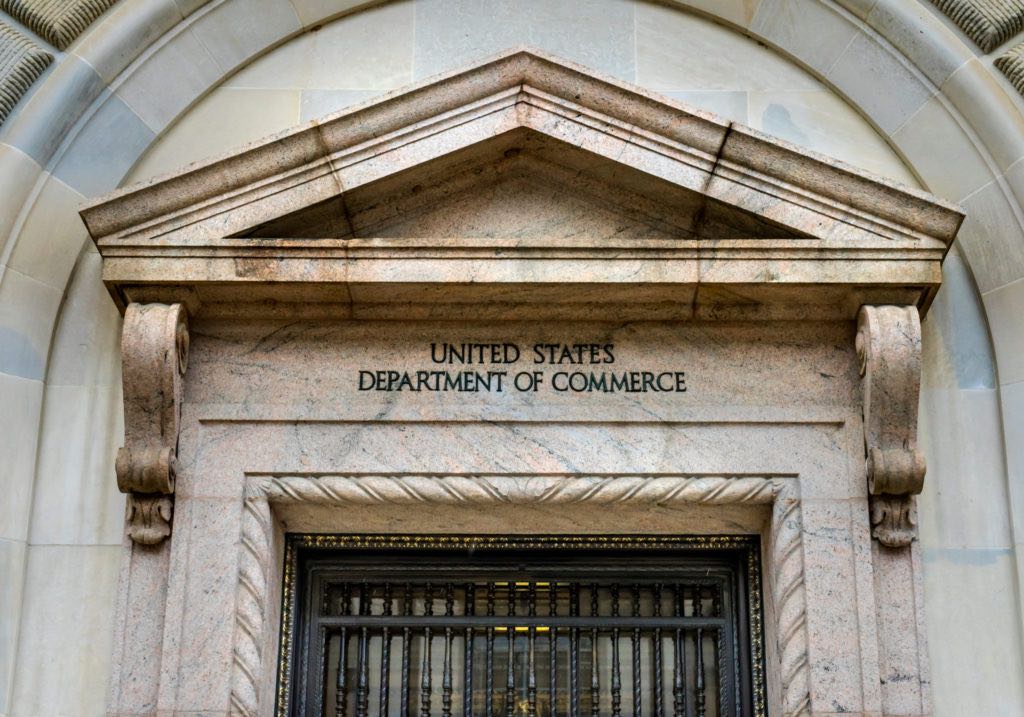
Remarks by Deputy Secretary of Commerce Don Graves at the 2023 EXIM Annual Conference
Oct 19, 2023
Remarks by Deputy Secretary of Commerce Don Graves at the 2023 EXIM Annual Conference
ASowah@doc.gov
Thu, 10/19/2023 – 15:27
Export and investment promotion
AS PREPARED FOR DELIVERY
Thursday, October 19, 2023
Office of Public Affairs
publicaffairs@doc.gov
Don Graves
Thank you, Chair Lewis, for that warm introduction. I’m delighted to be here at this year’s EXIM Annual Conference with the private sector, fellow government officials, and all of you who are driving competitiveness of U.S. exports around the world.
I’m also particularly pleased to open this panel on Advancing American Competitiveness through Transformational Exports and Emerging Technologies—a topic that is at the heart of the Commerce Department’s goal of promoting U.S. competitiveness, innovation, economic and national security, and equity.
During my recent visit to Korea and Japan, I told our partners in government and the private sector that we are living through an era of unprecedented global economic and security challenges. The lingering COVID pandemic, the existential threat of climate change, the terror attacks in Israel and ensuing violence, the Russian war of aggression in Ukraine, and the rise of authoritarian regimes all pose grave threats to the rules-based international economic order that the United States and other like-minded democracies around the world have diligently built over generations.
Exacerbating these challenges is a high-stakes, must-win technology competition, in which the U.S. and its democratic allies increasingly find themselves facing authoritarian adversaries around the world. Confronting these challenges and bolstering U.S. competitiveness will require our resources, creativity, and collaboration across the government and business.
Who leads on critical and emerging technologies – from computing technologies, such as chips, cyber, and AI to climate and clean technologies to biotechnologies – will shape the international economic order.
The Biden-Harris Administration recognized this early on and took bold action, both at home and in concert with our allies, to preserve our shared values and ensure our shared economic prosperity.
As part of these, the Department of Commerce, working in lockstep across federal agencies including EXIM, is working to realize the Administration’s goals in three ways:
First, as part of our National Export Strategy, we are making strategic domestic investments while also deepening commercial ties with our allies in critical and emerging technologies that will have an outsized impact on our economies.
Second, we are taking steps to protect our national security by fostering trusted tech ecosystems, combatting economic coercion, and preventing malign actors from using sensitive goods and technologies to undermine our national security and the security of our partners and allies.
Third, we are expanding our engagement, along with our private sectors, in the Global South, including through the Partnership for Global Infrastructure, to offer our partners and allies more attractive financing and infrastructure alternatives to help meet their most pressing economic needs, and to make the United States their partner of choice.
A common thread running through all these priorities is the Commerce Department’s partnership with EXIM, and its wide range of trade finance instruments and advisory services designed to promote U.S. exports, especially by our small and medium-size enterprises; to drive innovation; and to level the playing field for American businesses and workers. The Commerce-EXIM partnership goes back decades, and covers joint work on trade missions, sourcing and advocacy of deals, and a range of innovative approaches to open markets around the world to US exporters. It also includes our collaboration with the International Development Finance Corporation, United States Trade and Development Agency, the U.S. Department of State, and other federal agencies – all focused on positioning U.S. companies as partners of choice in helping our allies address their most challenging economic concerns.
Let me reflect on my recent visit to Korea and Japan to give you a window into the sheer breadth and depth of our engagements there. One of my goals was to lead a cybersecurity trade mission of 15 world class American companies.
And that was not all. Our Japanese and Korean partners were keen to make progress on two-way commerce and trade ties across an array of critical and emerging technology opportunities – from chips to clean tech, from AI to cybersecurity, from space commerce to ORAN, as well our partnership with developing countries. Our success depends importantly on EXIM and its range of innovative tools including its China and Transformational Exports Program, or CTEP, which provides U.S. exporters with the support—a total of $494 million as of last year – to succeed on the frontiers of ten export areas, such as the ones I mentioned.
In fact, my engagement with partners in Japan and Korea was illustrative of the United States’ reengagement, under the Biden Administration, with our partners in the region as a whole.
Nowhere is this more evident than in the Indo-Pacific Economic Framework for Prosperity (IPEF), our multilateral efforts along with 13 countries in the region to promote innovation and growth across the region in clean, digital, and other technologies with protections against the scourge of corruption.
Japan, Korea, and other partners, have been instrumental in ensuring the progress of IPEF negotiations, including the conclusion in May of this year of the first-of-its-kind Supply Chain Agreement among the 14 partners. We are looking to conclude similar agreements on the clean economy, including the energy transition, and on fair economy principles, such as the fight against corruption and efficient taxation.
The promise of IPEF will be realized in part when we see a meaningful growth in high standards, high-impact projects in digital and clean technologies, other supply chains, and in the development of economic corridors. These projects and our companies that support them represent for middle-income countries in the Indo-Pacific an attractive alternative – one that offers higher quality goods and services, trusted and transparent financing, and access to vast innovation ecosystems. That is what we are working towards with partners such as Japan and Australia, in the context of the G7’s Partnership for Global Infrastructure.
Before I hand things over, let me leave you with two thoughts. “Open, connected, prosperous, resilience, and secure.” That is how President Biden characterizes what he sees as a shared vision of the Indo-Pacific. Realizing this vision requires that, one, the U.S. and our democratic allies lead on critical and emerging technologies, and two, that our exporters are viewed increasingly as partners of choice. I’m proud that Commerce, EXIM, and our interagency partners are fully committed to this goal and fully engaged with our partners in its achievement.
Bureaus and Offices
International Trade Administration
Tags
Exports
Read the full report from the U.S. Department of Commerce: Read More


